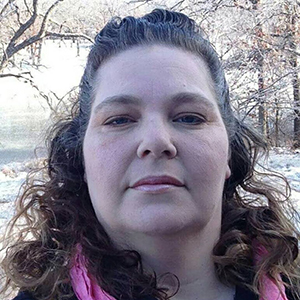What Is a Geriatric Nurse?

Geriatric Nurse Career Overview
Where you’ll work: Hospices, assisted living facilities, home health, retirement communities and Veteran’s Affairs (VA) healthcare facilities.
What you’ll do: Care for the elderly and older adults. Geriatric nurses often treat conditions that are more commonly found in older people, such as dementia, diabetes, heart failure, stroke, chronic pain, cancer and more.
Minimum degree required: ASN or BSN, though many employers prefer or require nurses to have a BSN.
Who it’s a good fit for: Working with the elderly often requires strong communication skills and patience. Nurses who decide to pursue this specialty should also be resilient, since they’re likely to see patients decline and pass away.
Job perks: Depending on the kind of facility you work at, you may get the chance to develop closer relationships with your patients because you are caring for them more consistently, over a longer period of time. Geriatric nurses are also in high demand due to an aging population.
Opportunities if you pursue a higher degree or certification: Nurses who get an advanced degree have the chance to become a Geriatric Nurse Practitioner or a Geriatric Clinical Nurse Specialist, and may be able to move into leadership or managerial positions easier.
Median annual salary: $86,070
Geriatrics is a healthcare specialty that focuses on the clinical care of older adults. Often, this means working in skilled nursing facilities or assisted living communities and providing daily care to the people who live there.
In this Article
How to Become a Geriatric Nurse | Licenses and Certifications | What Do Geriatric Nurses Do? | Salary | Career Outlook | Is this Job Right for Me? | Professional Resources
What Is a Geriatric Nurse?
Geriatric nurses are sometimes referred to as gerontological nurses. No matter the title, nurses in this specialty take on challenges and responsibilities that require compassion, patience, and understanding. They provide care to patients with physical and mental health conditions that can make it difficult for those patients to communicate, care for themselves, remember instructions, or walk even short distances safely. Geriatric nurses might be responsible for patients who are at a high risk of falling, or who are unable to verbally express pain, hunger, and other needs.
Despite the challenges, geriatric nursing can be a very rewarding nursing specialty. Many geriatric nurses enjoy working in long-term care settings because it allows them to get to know each patient. This can be a great chance to not only form a strong patient-caregiver bond but to learn from the people you care for.
Many geriatric nurses enjoy working in long-term care settings because it allows them to get to know each patient.
“Geriatric nursing is unique because the population that you care for is unique,” says Carrie D. Brecheisen, RN, a geriatric nurse with more than 30 years of experience in the field. Brecheisen is the nursing supervisor for Saint Raphael Nursing Services in Wichita, Kansas. “This generation is living history. The seniors have so many great and eye-opening stories. They have first-hand accounts of some of the biggest historical events.”
How to Become a Geriatric Nurse
The first step to becoming a geriatric nurse is to pursue either a two-year Associate Degree in Nursing (ADN) or a four-year Bachelor of Science in Nursing (BSN) degree. While employers are increasingly requiring applicants to hold a BSN for most nursing positions, both options will prepare you to take the National Council Licensure Examination (NCLEX-RN). Once you pass the exam, you can apply for RN licensure in your state.
You can work as an entry-level geriatric nurse once you have your RN license. Once you gain experience, your degree can influence how you advance in your role. For instance, if you earned a BSN, you might be able to take on leadership or administrative roles in geriatric nursing.
“Geriatric nurses can work in many facets within long-term care, skilled nursing, or assisted living,” Brecheisen says.
Such jobs may include:
You can advance your geriatric nursing career even further by earning a Master of Science in Nursing (MSN) or Doctor of Nursing Practice (DNP) and becoming an advanced practice registered nurse (APRN).
As a geriatric APRN, there are two primary paths you could take:
Geriatric Nurse Practitioner: Geriatric nurse practitioners act as primary care providers for older adults. They can assess, diagnose, and prescribe treatments, including medications, to patients that they see. They might also visit patients in nursing facilities and assisted living settings to provide care.
Geriatric Clinical Nurse Specialist (CNS): A geriatric clinical nurse specialist provides advanced care to geriatric patients and works in a leadership capacity to improve nursing care and patient safety in their facility.
Licenses and Certifications
There are no certifications required to practice as a geriatric nurse. However, earning certification is a great idea. It shows that you’re dedicated to your specialty and that you have the experience and education you need to deliver excellent patient care. Plus, certification can help you stand out to employers and might increase your job prospects.
The American Nurses Credentialing Center (ANCC) offers the Gerontological Nursing Certification (GERO-BC). You’ll need an RN license in good standing to be eligible for this certification. Other eligibility requirements include:
You’ll need to pass an exam for certification. Your certification will need to be renewed every five years. You’ll need to earn 75 continuing education credit hours for renewal.
What’s the Difference: Geriatric Nurse vs Gerontologist
It’s easy to get geriatric nursing and gerontology confused. The two roles sound very similar, and they do have a lot in common. However, there are some important differences.
Geriatric nursing focuses on caring for the physical and mental health needs of older adults. It involves providing treatment and direct health care to people in clinical settings.
Gerontology is a healthcare role, but not a nursing role. A gerontologist focuses on the social and psychosocial effects of aging along with physical and mental health needs.
Gerontologists often take on administrative and customer service roles and advocate for changes in public policy. They are rarely involved in direct patient care, although this has shifted some in recent years.
| Geriatric Nurses: | Gerontologists: |
|---|---|
| Need an RN license | Need a bachelor’s degree, often a master’s |
| Earn a median income of $86,070 a year | Earn a median income of $91,510 a year |
| Focus on patient care | Focus on public policy and sociology |
Salary Source: U.S. Bureau of Labor Statistics, 2021
What Do Geriatric Nurses Do?
Geriatric nurses are responsible for a wide range of tasks. They take on standard RN duties such as administering medications, caring for wounds, providing treatments, monitoring vital signs, and developing patient care plans. However, because they are caring for older adults, there are specific concerns and responsibilities for geriatric nurses. For instance, geriatric nurses must have an understanding of conditions that are common among older adults, including:
Geriatric nurses manage many of these conditions daily. They know the challenges these conditions can present, and they know the most effective way to provide care to patients who have them. This often adds job duties such as:
Where You’ll Work
Geriatric nurses can find work in settings such as hospitals and skilled nursing facilities. Other common workplaces include:
However, you might work in some unexpected locations, too.
“A surprising workplace is convents,” Brecheisen says. “With the aging population, there are not enough nuns joining to care for the elder population, so they need to hire outside nursing care.”
Salary
The U.S. Bureau of Labor Statistics (BLS) doesn’t track data for nursing specialties. As a geriatric registered nurse, your specific job title and level of experience can have an impact on your salary. Take a look at RN median annual salaries according to the BLS:
As Brecheisen mentioned, geriatric RNs with years in the role can take on management and leadership roles in skilled nursing or other long-term care facilities. The BLS reports that medical and healthcare service managers working in nursing and long-term care facilities earn a median salary of $97,360.
Advancing your education could also boost your salary significantly. Nurse practitioners across all specialties earn a median salary of $126,260, according to BLS data.
Career Outlook
Healthcare careers are on the rise. The baby boomer generation, one of America’s largest generations, is aging. This will lead to a huge spike in healthcare careers for two primary reasons.
The first reason is retirement. As baby boomer professionals retire, they’ll create openings all over the workforce, including in nursing, that will need to be filled by skilled and educated replacements.
The second reason is that, as a rule, people need more healthcare as they age. Having a larger number of older Americans than ever before means there will be greater demand for healthcare services.
Together, these factors mean healthcare careers are skyrocketing.
Nursing is one area projected to see major growth. The BLS projects a 5.6% increase in all RN roles through 2032. The growth of NP roles is expected to be even more impressive, with a projected increase of 44.5%.
The BLS doesn’t make projections specific to geriatric nurses. However, Brecheisen says that geriatrics is a specialty where there is a major demand for qualified nurses.
The BLS projects a 5.6% increase in all RN roles and a 44.5% increase in NP roles by 2031.
“The nursing shortage is hitting in every field and geriatric nurses are always needed,” Brecheisen says.
Is Geriatric Nursing for Me?
Nursing is a field that draws compassionate, empathetic, and caring people. To take on the specialty of geriatric nursing, you’ll also need a good deal of patience, excellent communication skills, and the ability to stay calm in a crisis. You’ll also need to be resilient, as you’re likely to see many patients decline and pass away during your time as a geriatric nurse.
Other helpful traits include:
- Flexibility
- Understanding
- Active listening
- Openness to learning new things
- Ability to adapt to challenging situations and people
- A sense of humor
- Strong problem-solving skills
Professional Resources
Staying current on news, trends, and research is an important part of building your career. By connecting with professional associations, you can develop career networks and ensure you’re always in the loop. There are many associations and resources current and aspiring geriatric nurses might find helpful:
Organization
What They Do
The American Society on Aging (ASOA)
ASOA is committed to helping people who work with older adults—including nurses, social workers, gerontologists, and other professionals—increase their skills and knowledge.
The American Geriatrics Society (AGS)
AGS is focused on the clinical care of older Americans and the professionals who provide it. AGS advocates for healthcare reforms and policies that can benefit older Americans. You’ll also find career resources and industry news.
Gerontological Advanced Practice Nurses Association (GAPNA)
GAPNA is focused on geriatric APRNs. However, they also accept geriatric RNs as members. The association provides continuing education opportunities, career resources, conferences, and more.


With professional insight from:
Nursing Supervisor, Saint Raphael Nursing Services
